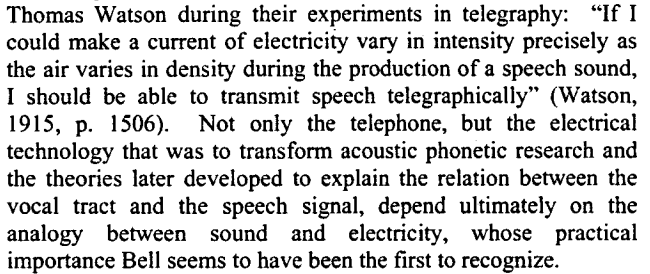I think that the telephone did not directly influence phonetics, but there was probably an indirect influence via the invention of the electrical microphone (without which, no phone) and the development of an understanding of how to convert pressure waves to electricity by varying resistance on an electrical circuit. In my opinion, the most important invention of that time for phonetics was the phonograph since it allowed speech to be captured.
EDIT:
Phonetics refers to the linguistic study of sound at the physical level. There are many allied fields such as anatomy, physics, electronics and psychology that phoneticians call on, where telephones and the like were significant. Focusing just on phonetics and not broader acoustics and the like, the main technique of phonetics up to the invention of the spectrogram was auditory comparison a.k.a. ear-training, followed by some form of palatography. There were occasional uses of the kymograph to show something about airflow, e.g. in Armstrong's Kikuyu book. Independent of what linguists were doing, engineers developed theories of and tools for sound, which naturally could be used by linguists if they were so inclined, some number of years (many) later.
As I said, the relevance of the electrical microphone was its contribution to transduction from pressure waves to something more easily quantifiable and also manipulable via circuitry and then more abstractly by equations. Working backwards from what phonetics has developed into, digital signal processing is sort of the technological "big bang", and DSP is possible only if there is an electrical-theoretic way to turn pressure waves into current variations (we're out of the domain of phonetics now), and that requires transduction to current (microphone) and quantization circuitry. But you also need a computer to do anything useful with the digitized output. Apart from a very few laboratories such as Haskins and possibly UCLA, phoneticians still had to deal with speech sound at the analog level (hence burnt-paper spectrography) into the 80's.
